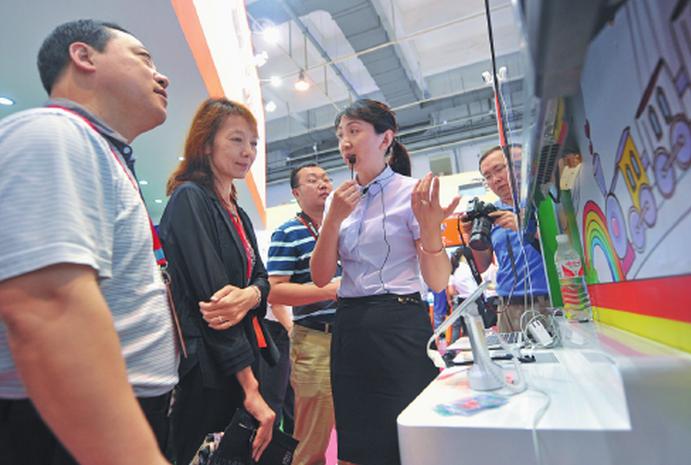China Unicom reform in full swing


Telecom firm streamlines organization to boost efficiency
Marketing professional Wu Xiaoen, 28, had never imagined that working with a State-owned enterprise such as China United Network Communications Group Co Ltd or China Unicom, the country's second-largest telecom carrier by subscribers, would entail a fast-paced, stressful job.
Her expectation was shaped by a long-standing perception that SOEs offer cushy jobs where staff are not stressed and had loads of spare time.
But in reality, Wu found herself putting in 12-hour work several days a week over the past months. Sometimes, she would even stay up several nights.
"It (the work schedule at the SOE) is completely different (from what I had expected). I'm now almost as busy as my friends working with internet-based companies."
Such a dramatic change in workplace schedules is part of broader reforms at China Unicom. The SOE is pressing ahead with its 78 billion yuan ($12.3 billion) mixed-ownership reform. It is widely seen as a test case for the country's pan-SOE makeover.
After announcing in August 2017 that it had attracted industry heavyweights including Alibaba, Tencent, Baidu and JD as private investors, China Unicom has sought to streamline its organization, cut redundant departments and boost efficiency.
Wang Xiaochu, chairman of China Unicom, said at a board meeting in February that overhauling corporate structure is one of the reform's top priorities.
"We started with our Beijing headquarters, where the number of departments has been slashed from 27 to 18," Wang said.
As a result, the number of employees at the headquarters has also been cut by half, from 1,781 to 865, with some of them transferred to jobs directly serving consumers. Its local branches have also been part of the push to "slim body", with 205 organizations closed.
Xiang Ligang, a telecom veteran and CEO of the industry website Cctime, said: "China Unicom is losing weight faster and on a larger scale than we have expected. It highlights the determination to rejuvenate the State-owned heavyweight with new passion."
Meantime, China Unicom is also working hard to live up to its promise of incentivizing employees with stock rewards. A list of more than 7,000 staff has been compiled for review within the company. The list includes mid-level managers, senior executives and professionals who will be rewarded with about 800 million shares.
When the reform goes through, employees will account for 2.7 percent of the company's total shares, while shares owned by the group will plummet to 36.7 percent from 62.7 percent.
Also, China Unicom is giving its newly added private investors some seats on its board. Among its 13 new board members, four are from the private sector-way beyond many people's expectations. One of them is Robin Li, CEO of Baidu, China's largest online search engine company and a pioneer in artificial intelligence technology.
"The move signals that China Unicom really wants to give private investors a say in the company's business decisions," said Fu Liang, an independent analyst who has been tracking the telecom sector for more than 15 years.
Other new board members include three representatives from tech heavyweights Alibaba, Tencent and JD, all of which are involved in China Unicom's $12.3 billion reform plan.
Last August, China Unicom announced that Baidu would invest 7 billion yuan in the company for a 3.3 percent stake. Tencent invested 11 billion yuan and gained a 5.18 percent stake, with other investments coming from Alibaba and JD.
Since then, China Unicom has inked a series of deals with Baidu, Tencent and Alibaba in a wide range of areas, such as big data, cloud computing, the internet of things and smart electronic gadgets.
Peter Liu, research director at consultancy Gartner Inc, said China Unicom is the biggest beneficiary of the mixed-ownership reform, and it is utilizing cutting-edge technologies from internet giants to access more channels and potential customers.




































